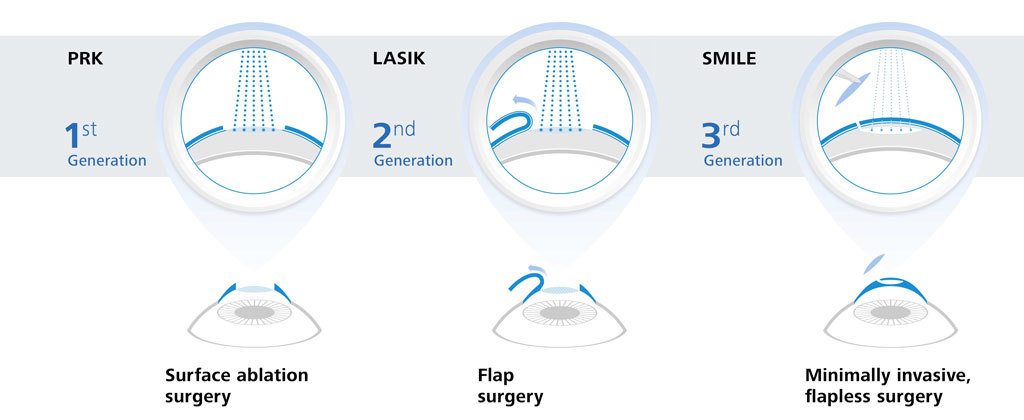Being Reluctant On SMILE Surgical Procedure? Delve Into Key Considerations And Understandings To Aid You Make An Enlightened Decision Regarding Your Aesthetic Future
Being Reluctant On SMILE Surgical Procedure? Delve Into Key Considerations And Understandings To Aid You Make An Enlightened Decision Regarding Your Aesthetic Future
Blog Article
Created By-Lundgreen Dalrymple
If you're pondering SMILE eye surgical procedure, consider this: are you prepared to accept potential aesthetic liberty, or does the idea of any dangers make you wait? Your decision will hinge on a cautious balance of considering the benefits versus the uncertainties. It's critical to delve much deeper into the nuances of SMILE surgery to make an informed selection that aligns with your aesthetic goals.
Understanding SMILE Eye Surgery
When considering SMILE Eye Surgical treatment, it's important to comprehend the procedure and its advantages. SMILE, which means Small Cut Lenticule Extraction, is a minimally invasive laser eye surgical treatment that deals with typical vision issues like nearsightedness (nearsightedness).
Throughout Vision Center Las Vegas , your eye doctor will utilize a femtosecond laser to produce a little incision in your cornea. Through this laceration, a little disc of cells called a lenticule is eliminated, improving the cornea and fixing your vision.
Among the vital benefits of SMILE Eye Surgical procedure is its quick healing time. cataract surgery asleep or awake of patients experience improved vision within a day or 2 after the procedure, with very little pain.
Additionally, SMILE is known for its high success price in providing lasting vision modification. Unlike What Do Optometrist Do , SMILE does not require the production of a flap in the cornea, decreasing the danger of problems and permitting an extra secure corneal structure post-surgery.
Comprehending the procedure and its advantages is important when thinking about SMILE Eye Surgical procedure for vision correction.
Pros and Cons of SMILE
Thinking About SMILE Eye Surgical procedure for vision modification features different benefits and possible drawbacks.
One of the primary pros of SMILE is its minimally invasive nature, as it involves a little laceration and usually results in quick healing times. https://augustqdnxj.like-blogs.com/29133591/attracted-by-cataract-surgical-treatment-reveal-the-truth-behind-common-myths-and-mistaken-beliefs-with-insights-from-an-ophthalmologist is likewise known for creating very little pain and completely dry eye symptoms post-surgery contrasted to other vision modification methods. Furthermore, SMILE has actually been revealed to provide exceptional visual outcomes, with numerous clients attaining 20/20 vision or far better.
On the other hand, a prospective disadvantage of SMILE is that it might not appropriate for individuals with extreme refractive errors, as the treatment array is rather limited contrasted to LASIK. An additional consideration is that the understanding contour for doctors applying SMILE can affect the schedule of skilled companies in certain areas.
It is necessary to consider these pros and cons very carefully when making a decision if SMILE is the appropriate selection for your vision improvement needs.
Establishing Qualification for SMILE
To identify if you're qualified for SMILE eye surgery, your optometrist will conduct an extensive evaluation of your eye health and wellness and vision needs. Throughout this examination, variables such as the stability of your vision prescription, the density of your cornea, and the overall health of your eyes will be examined.
Typically, prospects for SMILE are over 22 years of ages, have a stable vision prescription for at least a year, and have healthy and balanced corneas without problems like keratoconus.
Your eye doctor will likewise consider your overall eye wellness, any existing eye conditions, and your way of life requires to determine if SMILE is the appropriate selection for you. It's vital to communicate any kind of certain visual needs or concerns you might have during this evaluation to ensure that the treatment aligns with your assumptions.
If you aren't eligible for SMILE, your optometrist might recommend alternative vision improvement options that far better match your specific requirements and eye wellness status.
Verdict
Eventually, deciding whether SMILE eye surgical procedure is right for you needs mindful consideration of your specific eye health and wellness and visual requirements. Speak with your eye doctor to determine your qualification for the treatment and weigh the potential advantages and disadvantages. Remember to interact any problems or questions you may have during the analysis process to make an educated decision concerning your vision adjustment choices.
